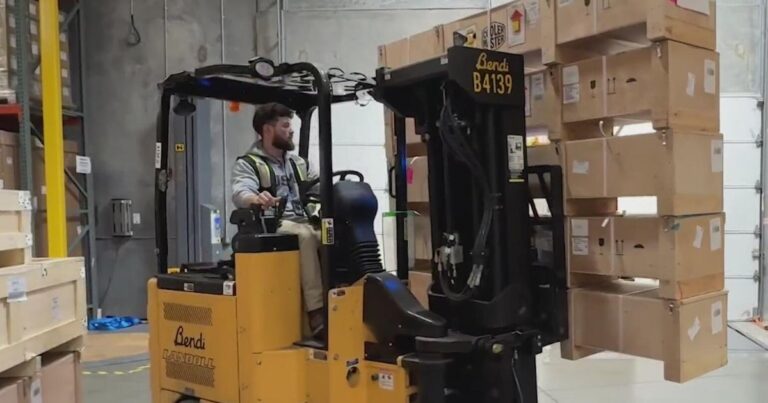Lynx Logistics Thrives Amid Increased Demand for Bonded Warehousing
As trade tensions escalate and tariffs rise, the Bay Area’s Lynx Logistics is uniquely positioned to capitalize on changing market dynamics, with heightened demand for its high-tech bonded warehouse services in Fremont.
Changing Economic Landscape
In response to recent tariff increases by the Trump Administration, the logistics sector is witnessing a surge in activity, particularly concerning the utilization of bonded warehouses. These facilities allow importers to store goods without immediately paying tariffs, thus providing a crucial financial relief in a volatile market.
Expansion Plans for Lynx Logistics
Francisco Garcia, the founder of Lynx Logistics, shared that the company is rapidly expanding its bonded warehouse capacity due to unprecedented demand. “The demand is so high, we just keep expanding,” he stated, forecasted a full utilization of the current space within days.
Enhancements to Warehouse Operations
Lynx Logistics has received federal approval to significantly increase its bonded space from its current capacity to 15,000 square feet. As part of this expansion, they are implementing new storage systems designed to maximize efficiency: “We’re installing new racks. We’re going to quadruple-stack U.S. Customs bonded pallets,” Garcia added, emphasizing their commitment to adapt to the growing needs.
Benefits of Bonded Warehousing
Bonded warehouses serve a pivotal role in international trade. They enable companies to defer tariff payments until goods are custom-processed, allowing them greater flexibility with cash flow. Shane Salazar, the CEO of Lynx Logistics, explained, “This is allowing companies to stretch their cash in terms of not paying for the entire shipment at entry to U.S. Customs and pay as they touch it down to take a carton or a pallet.”
Market Demand Surge
The interest in bonded warehousing has skyrocketed since the tariff announcements, according to Danny Reaume, an industrial property broker with JLL. He noted that inquiries for such spaces have surged from just a couple of calls monthly to over a hundred. “Everybody across the supply chain is trying to get their inventory here, into the United States, into the West Coast market, and shield themselves from these tariffs,” Reaume indicated.
Challenges and Opportunities
While the market for non-bonded warehouse space is sluggish due to decreasing shipments, companies are aggressively pursuing any available bonded spaces to ensure timely inventory availability. Garcia reported that his team is working long hours to manage this unexpected growth opportunity: “It’s busy times on the phone and email. It’s very little sleep lately.”
Operational Considerations
Operating a bonded facility requires compliance with specific security mandates imposed by U.S. Customs and Border Protection, typically resulting in higher operational costs, including customs bond premiums. Nonetheless, the strategic advantages of bonded warehousing are driving companies to seek out these spaces, allowing them to maintain a competitive edge in the current economic climate.
Conclusion
As Lynx Logistics expands and adapts to the rapidly changing trade environment, its ability to offer bonded warehousing solutions highlights a significant opportunity for growth within the logistics sector. Businesses are leaning on these critical services to navigate the complexities of tariffs and trade, making bonded warehouses a vital component in the supply chain management landscape.
Written by Kenny Choi



